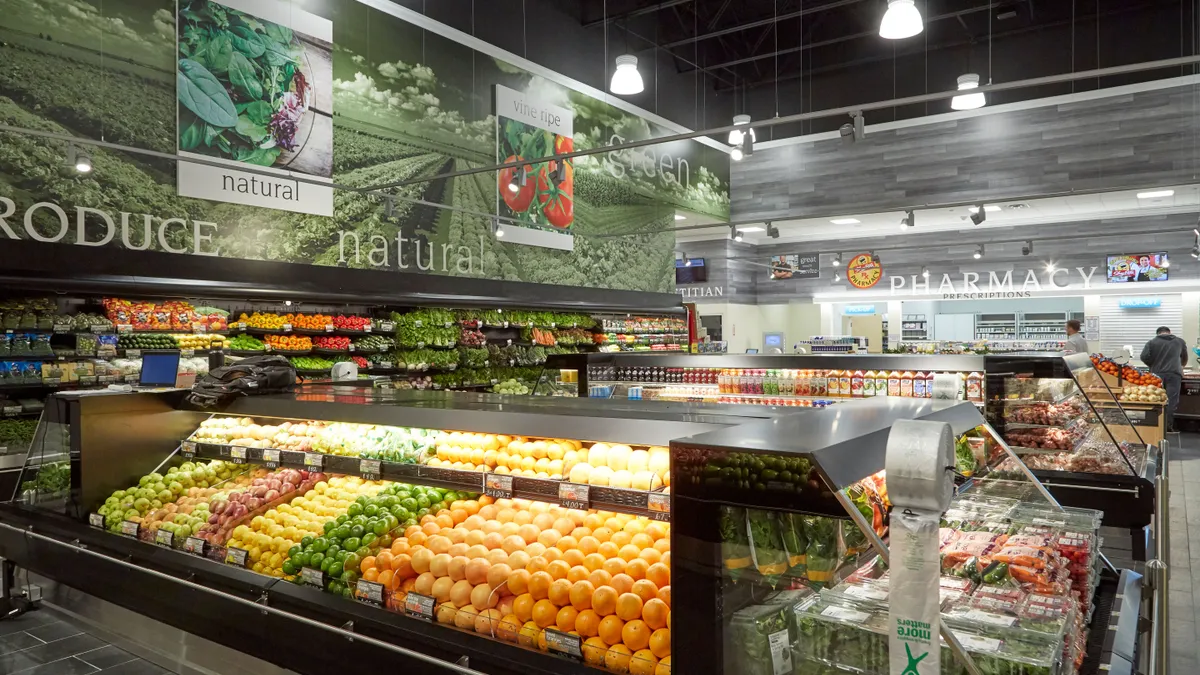Dive Brief:
- The city council of Palo Alto, California voted unanimously Monday to approve one of the Bay Area's strictest single-use plastic bans, as reported by the Mercury News.
- The ordinance prohibits the distribution of plastic straws, utensils and stirrers in food service establishments starting January 2020, along with produce/meat bags in grocery stores and farmers markets in July 2020. Businesses will be required to only print receipts upon request.
- Some attendees of Monday's meeting, however, criticized the ban's limited scope. "We need to focus on reducing all of our disposable foodware," said UPSTREAM Program Director Miriam Gordon. Replacing single-use plastics with other disposable products, Gordon maintained, merely "transfers the environmental burden from our oceans to our climate and habitat."
Dive Insight:
Per the ordinance, all straws, utensils, stirrers and produce bags must be compostable or reusable, and businesses are to distribute plastic products only upon request, according to a staff report. The ban does not apply to plastic food or beverage containers, and hospitals caring for patients who require plastic straws will be granted an exemption — a previous point of contention, as reported by Palo Alto Daily Post.
The ban's implementation represents phase one of Palo Alto's 2018 Zero Waste Plan to divert 95% of its waste from landfills and reduce 80% of greenhouse gases by 2030. The second phase — slated for 2021 implementation — would require all food service establishments to charge for non-reusable cups and containers, provide reusable foodware to all dine-in customers, and install dishwashers. The final phase, which the city plans to implement in 2025, would require establishments to provide reusable foodware for all takeout orders.
Palo Alto is the latest in a string of Bay Area cities to crack down on single-use plastics: San Francisco and Alameda have prohibited plastic straws and utensils, while Berkeley has enacted a sweeping ordinance aimed at eliminating all single-use foodware. Palo Alto, however, is the first in the pack to prohibit plastic produce bags.
As part of its "zero waste" effort, the city council also passed an ordinance (effective July 2020) mandating deconstruction of buildings and structures — as opposed to demolition — and source-separation of materials to increase landfill diversion. More than 40% (approximately 19,000 tons) of the city's landfilled waste is the result of demolition, construction, renovation and remodels of structures, according to the staff report.
Successful implementation of the foodware and deconstruction ordinances, the report estimates, will decrease landfill disposal by more than 8,220 tons and reduce greenhouse gas emissions by 22,770 metric tons of carbon dioxide equivalent.















